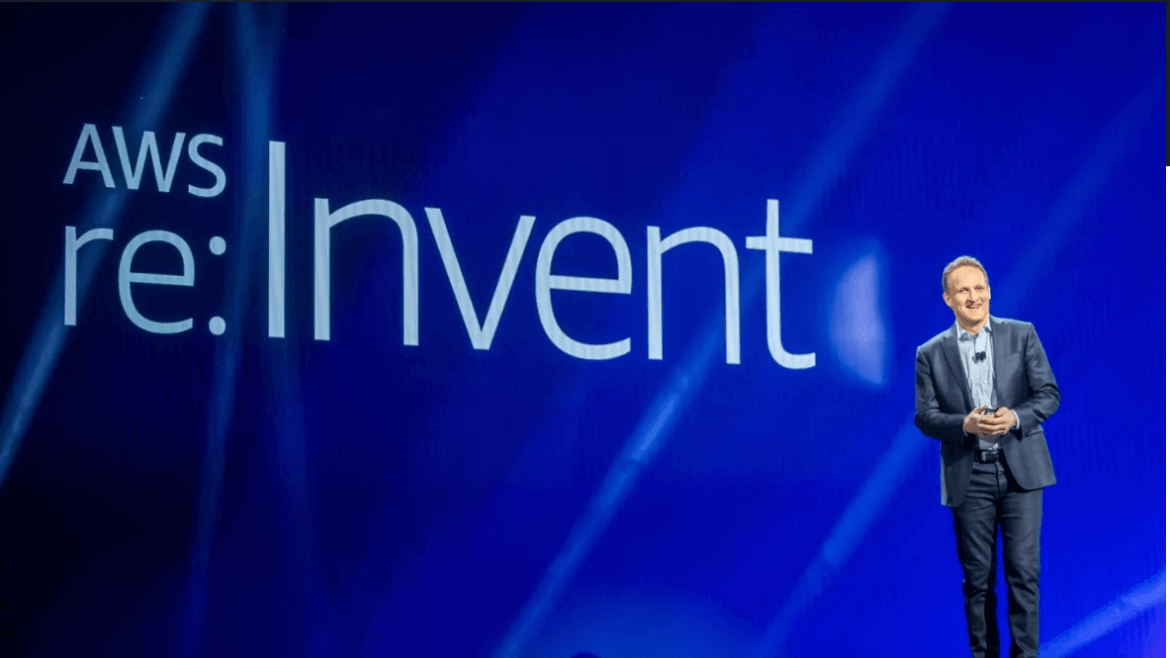The AWS re:Invent 2023 conference, held last week, emerged as a pivotal event, spotlighting the vast developments in generative AI. Amidst the array of innovations, Amazon Q, a groundbreaking generative AI assistant, took center stage. This article delves into the key takeaways from the event, offering insights into AWS’s strides in infrastructure, foundation models, and services, catering to diverse professionals from database managers to developers.
Reinforced Infrastructure for Generative AI:
AWS showcased advancements in its infrastructure, introducing the latest iterations of Graviton and Trainium chips. The Graviton4 processor boasts a remarkable 30% improvement in compute performance, 50% more cores, and 75% more memory bandwidth than its predecessor. Simultaneously, the Trainium2 chip is designed to accelerate training processes, offering up to four times faster training than the initial Trainium chips. The collaboration with Nvidia extended support for DGX Cloud, the introduction of the Ceiba GPU project, and new instances catering specifically to generative AI workloads.
New Foundation Models for Amazon Bedrock:
Amazon Bedrock, the AI app-building service, received a significant upgrade with the addition of updated models such as Anthropic’s Claude 2.1 and Meta Llama 2 70B. Amazon also introduced its proprietary Titan Text Lite and Titan Text Express foundation models. A notable inclusion is the Amazon Titan Image Generator, currently in preview, which enhances the AI app-building service’s capabilities. The Model Evaluation feature within Bedrock simplifies the task of selecting the best foundational model by allowing enterprises to evaluate, compare, and choose models that align with their specific use cases.
SageMaker Evolution for Generative AI:
In response to the challenges associated with manual model training, AWS introduced SageMaker HyperPod and SageMaker Inference within its SageMaker AI and machine learning service. HyperPod eliminates the complexities involved in building and optimizing machine learning infrastructure, reducing training time by up to 40%. SageMaker Inference focuses on minimizing model deployment costs and latency by enabling enterprises to deploy multiple models to the same cloud instance, optimizing the use of underlying accelerators. Additionally, AWS updated its low-code machine learning platform, SageMaker Canvas, allowing analysts to use natural language for data preparation.
Amazon Q — The Versatile Generative AI Assistant:
A standout moment at re:Invent 2023 was the unveiling of Amazon Q, a versatile generative AI assistant designed to cater to a multitude of enterprise functions. From application development and code transformation to business intelligence generation and aiding customer service agents via Amazon Connect, Amazon Q emerges as a robust and adaptable tool for diverse business needs.
Amazon Braket Direct for Quantum Computing:
As part of its managed quantum computing service, Amazon Braket, AWS introduced the Amazon Braket Direct program. This program provides researchers with direct, private access to quantum computers, eliminating wait times. Researchers can also receive expert guidance from AWS’ team of quantum computing specialists. Currently supporting IonQ Aria, QuEra Aquila, and Rigetti Aspen-M-3 quantum computers, the program aims to facilitate private access to the full capacity of these quantum processing units.
Cost Optimization Hub for Spending Reduction:
AWS addressed the critical aspect of cost optimization with the introduction of the AWS Cost Optimization Hub. This feature consolidates all cost-optimizing recommendations from AWS Cloud Financial Management (CFM) services into a unified hub. By incorporating customer-specific pricing and discounts into these recommendations, the Cost Optimization Hub provides a comprehensive view of an enterprise’s cost optimization opportunities. This feature is expected to empower FinOps and infrastructure management teams in understanding and leveraging potential cost savings.
Zero-ETL Integrations and Vector Databases:
In its ongoing efforts toward zero-ETL for data warehousing services, AWS announced new Amazon RedShift integrations with Amazon Aurora PostgreSQL, Amazon DynamoDB, and Amazon RDS for MySQL. Traditional ETL processes, known for their complexity and time consumption, can be bypassed with these zero-ETL integrations, allowing transactional data from these databases to be replicated into RedShift almost immediately for analysis. Additionally, AWS showcased updated support for vector databases within Amazon Bedrock, expanding its compatibility to include Amazon Aurora and MongoDB, alongside Pinecone, Redis Enterprise Cloud, and Vector Engine for Amazon OpenSearch Serverless.
AWS re:Invent 2023 undeniably marked a significant milestone in the realm of generative AI and its expansive applications. From fortified infrastructure to the introduction of versatile generative AI assistants, the event exemplified AWS’s commitment to empowering enterprises with cutting-edge technologies. The showcased innovations are poised to redefine the landscape of AI and machine learning, ushering in a new era of possibilities for businesses across various domains.


Leave a Reply